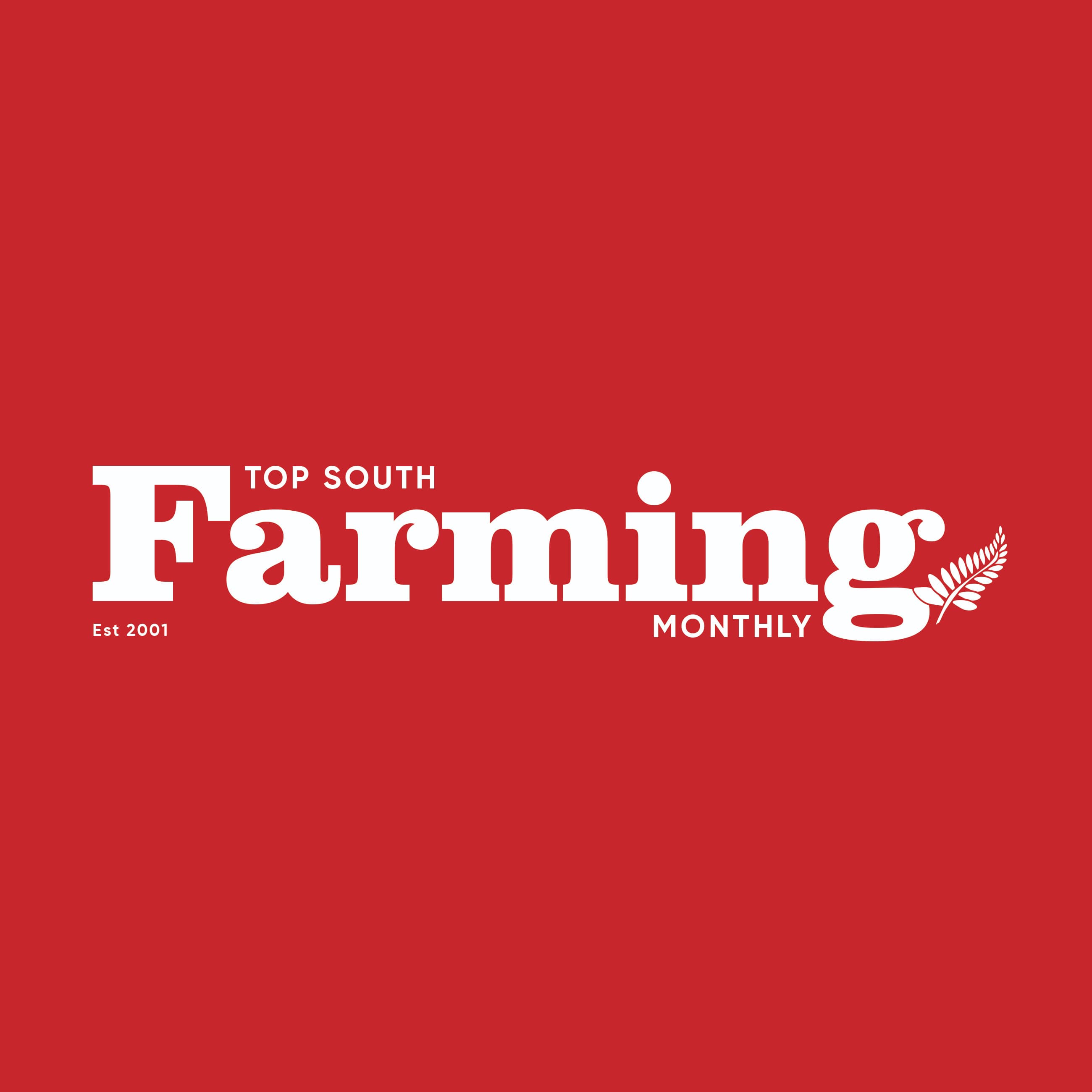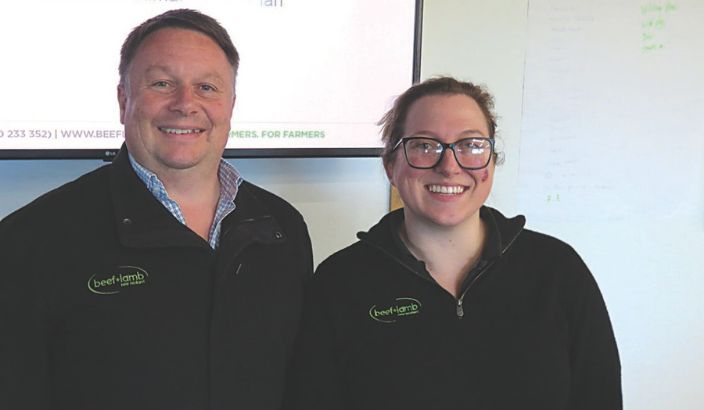Protecting your patch


Will Halliday, Beef and LambNZ veterinarian and Courtney Chenery, a Beef and Lamb facilitator. Photo: Andrew Ritchie.
Andrew Ritchie
What checks and controls protect New Zealand farms from devastating diseases such as foot and mouth? What bio security measures can farmers implement to protect their own patch?
These questions were answered by Beef and LambNZ Senior Manager for Technical Policy, veterinarian Will Halliday, at a recent Field Day.
Palm kernel, the widely-used feed supplement in the dairy industry, comes from countries where foot and mouth disease is prevalent and anyincidence of the disease would decimate our food export industry.
MPI is our first line of defence where pre-border checks are rigorous, ensuring there is no possible contamination from outside sources. On arrival at the border, it is not possible to check every consignment, but random checks are carried out and quarantined if required.
Recently five Blackgrass seeds were discovered in a cargo of imported rye grass. Currently, investigations are being carried out on a pasture dieback disease in Queensland and Northern New South Wales. Grey patches form in the pasture and will not grow anything ever again.
That’s not something we would like to see spreading to New Zealand. The necessity for strict border controls is paramount when you consider that New Zealand exports 40% of the world’s carrot seed with a large portion of that being produced on Canterbury farms.
By improving bio security practices at the farm gate, farmers can protect their properties from pests, diseases and weeds, affecting the health of their livestock and income.
Beef and Lamb produce a booklet on bio security guidelines, identifying seven intervention points to protect your property. Record and monitor stock movements. Will pointed out the necessity of utilising the NAIT website and filling out ASD forms.
“Mycoplasma Bovis could not have been eradicated without stock movement records from throughout the country,” he said. “Do your homework’ on stock you are introducing to your property”.
What is their TB status, have they been vaccinated, do they have parasites or drench resistance. Set aside a quarantine paddock to isolate stock for 7 to 14 days on arrival.
Another key tool to help protect stock is to breed for disease resistance, such as facialeczema. People and machinery entering the farm could be carrying weed seeds or diseases. Make sure machinery has been cleaned and equipment and footwear are clean and if necessary disinfected. Provide PPE for livestock handling.
Over 100 cases of the debilitating disease leptospirosis are recorded every year. It can be spread by contact with animal urine, rat and mice contamination, entering the body through cuts, the nose, and when lambing ewes. Dairy workers are particularly prone to infection.
Beef and Lamb recommends maintaining boundary fences and that farmers set up a community catchment group to exchange information. This is particularly useful for combined pest and disease control and shared knowledge and understanding.
It is important to dispose of animal waste properly and not allow scavenging animals access to offal pits.
Offal fed to dogs should either be cooked or frozen for 10 days to be sure it is free of hydatids. Providing reticulated water and good feed to livestock will help them combat disease.
Pig and poultry food should not be fed to sheep and cattle as it may contain animal protein. This was the reason BSE or ‘mad cow disease’ began in Europe and the UK. Ideally, one point of entry to the farm is helpful as it is easier to monitor.
Finally, a bio security sign is available for download on the Beef and LambNZ website. This will help to focus visitor’s attention on following biosecurity guidelines on your patch.
